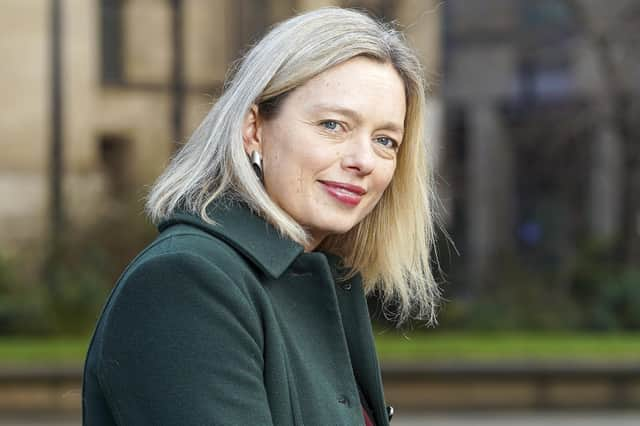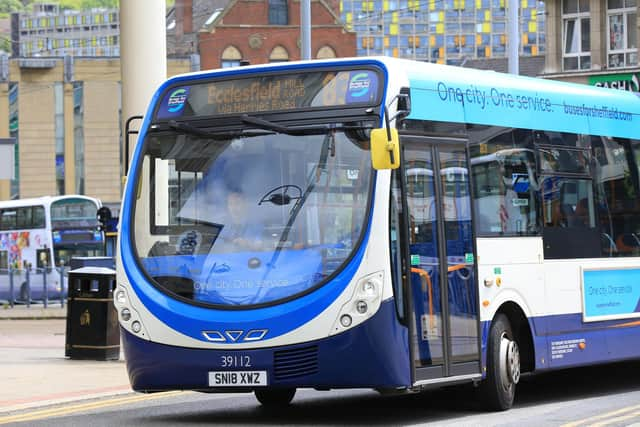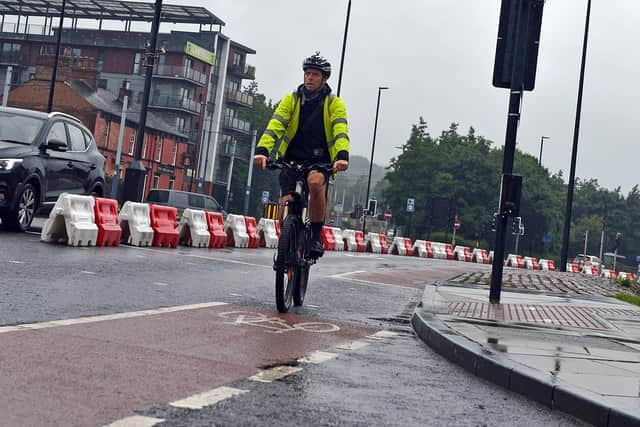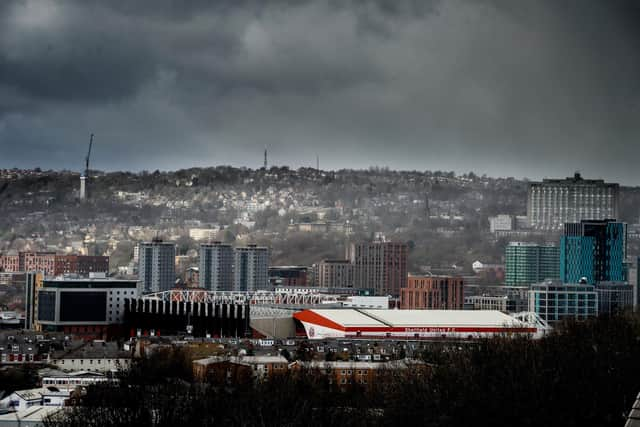"We all have a different part to play" - plans announced for getting Sheffield to zero carbon usage by 2030


And Sheffield Council’s ‘Pathways to Zero’ report outlines how ‘together’ everyone in Sheffield can target zero carbon usage by 2030 – including changes to how we heat our homes, how we travel around the city, and how we consume our food.
The council held the first summit in a series of events to launch their decarbonisation pathways report this week.
Advertisement
Hide AdAdvertisement
Hide AdIts report outlines how they plan on being net zero carbon by 2030 – and includes improvements to public transport, better cycle and pedestrian paths.


The summit featured talks from environmental experts, and as well as providing key data on how carbon usage can be reduced, also implied how Sheffield residents can help to be ‘part of the solution.’
Kate Josephs, CEO of Sheffield City Council, said that both universities are doing ‘groundbreaking’ things, as well as the city as a whole ‘playing a leading role in hydrogen and energy storage research and start ups’, but there is still a long way to go to reach the target in 19 years’ time.
She said: We need to use all these assets and work together as a city. Because if we do that, together, we can be much greater than the sum of our parts.
Advertisement
Hide AdAdvertisement
Hide Ad"I have also heard a sense of humility, and a sense of responsibility.


"There is far to go and we have lot to learn and a lot to do. It feels like we are at a fork in the road and that we have an opportunity to do things differently now and I think it is important that we do that.
She added that the council will be training ‘as many staff as possible’ in carbon literacy, finding investment in the projects, and incorporating climate activism into all decision and policy making.
"There is also a lot we cannot do alone,” Kate emphasised.
"By listening to people and learning, and involving them in everything we do. That means involving people in our formal decision making structures, but also when we are doing the more functional, possibly less exciting work that actually makes it easier or harder for people to act.


Advertisement
Hide AdAdvertisement
Hide Ad"We all have a different part to play when tackling climate change and know that many of our residents and businesses are struggling, especially at the moment, and we we will need to put more support in place to help them play their part.”
The report, which was outlined by Andy Sheppard, the UKIMEA region sustainable development manager at Arup, during the summit includes what changes we can all make in our homes, and out and about in Sheffield, and focuses predominantly on buildings and transport, the biggest areas of carbon energy consumption.
There has been a 42 per cent reduction in carbon energy usage across Sheffield since 2005, predominantly in industry and commercial sectors, with transport usage slower to change.
However, there will have to be an estimated £2 to £5 billion investment in the domestic sector, and considerably more in the commercial and industrial sectors to reach the Pathways to Zero target.
Advertisement
Hide AdAdvertisement
Hide AdMillions of pounds will also be spent on transport changes, with up to £1.5 million per kilometre spent on cycle superhighways.
"The option of not doing anything doesn’t exist anymore,” said Andy Sheppard from Arup, who lives in Sheffield.
"Everyone needs to play their part for climate change and to mitigate the situation we are in at the moment.”
Andy outlined what would need to happen in our homes and business buildings to decarbonise Sheffield by 85 per cent by 2030.
Advertisement
Hide AdAdvertisement
Hide AdHe said: “We will need to see a significant increase in the number of intallations, wall floor or roof. Two thirds of the energy consumption is linked to those buildings.
“Smart heating controls and LED lighting is significant, but not in the same league as improving the fabric or installation. Where we see the massive change in this sector, and the biggest change from all the sectors is the change from fossil fuels within our heating systems to electrified heating, technologies such as heat pumps.”
15,000 properties across Sheffield will need their gas boilers switched out by 2030, as well as implementing housing and commercial retrofit programmes.
"We can uncover some of the real challenges that the city faces going forward.
Advertisement
Hide AdAdvertisement
Hide Ad"We are also going to show some of the real benefits as well, so that we can come up with some clear recommendations and a clear path forwards,” Andy added.
How we travel will also lead to significant reductions in carbon usage, with plans for better cycling and pedestrian paths in place, as well as the need for buses and cars switching to electric and hydrogen power.
The Government has already banned the sale of new fossil fuel cars from 2030, ten years earlier than originally planned, and they have also said they will pump £54 million of funding into hydrogen buses.
It is expected that national cycling rates will also have doubled by 2025, helping to reduce emissions.
Advertisement
Hide AdAdvertisement
Hide AdAndy said: “Within Sheffield, we think the right approach is to try and switch a significant proportion of car trips to active travel where we can, walking, cycling or even running round the city by making it much more attractive and easy to take those routes.
"That won’t be available to all and isn’t suitable for all, but a significant number of car journeys are a very small distance with only a single person in so those are the sorts of things we are looking to tackle.
"Increase in public transport is also very important. The change there in a number of tonnes saved is also important, once we start to decarbonise all the buses and make them electric or Hydrogen-based.
“Changing the way our goods are moved around the city will also make a difference, and to save carbon.
Advertisement
Hide AdAdvertisement
Hide Ad"All cars being electric by 2030, and all larger vehicles are electric or green hydrogen. We are on that track as a nation but in Sheffield we need to try and leap frog and get ahead of the curb.
"We will need significant charging infrastructure and some incentivisation to make this happen buy there are definite options for that going forward.”
Emma Bridge, chief executive of Community Energy England, a national energy association based in Sheffield, helps lead green community projects and mentioned how important engaging and supporting a ‘behaviour change’ in the Sheffield community is when inspiring large-scale change.
A previous green community project includes Sheffield Renewables, which enables low-cost renewable electricity to be provided to the community through solar power.
Advertisement
Hide AdAdvertisement
Hide AdEmma Bridge said: "Societal and behaviour changes are a vital part of reaching net zero.
"The majority of the climate change committee’s commended interventions for reaching net zero require behaviour change.
"The exact amount will depend on what route will take but will involve changes to heating our homes, how we travel and even how we consume our food.
"Public buy in, co-operation and trust will be essential. We know we cant force people to change.”